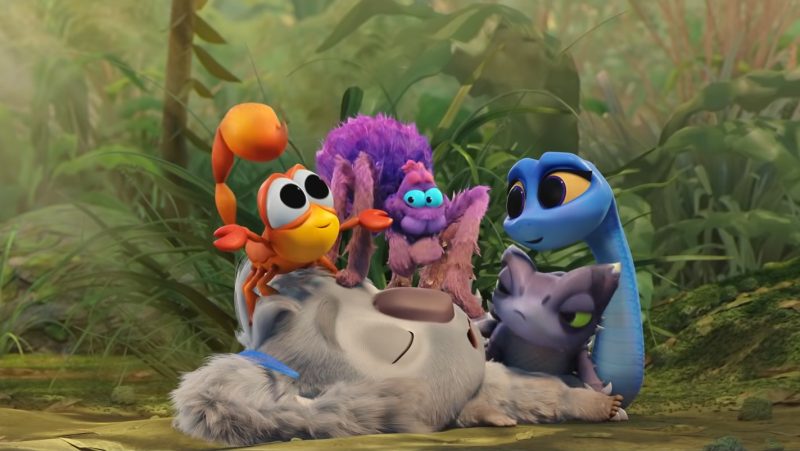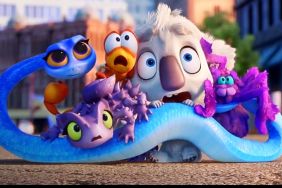(In partnership with Netflix)
Growing up, we are always told by well-meaning adults not to judge a book by its cover. Netflix’s new animated kids feature Back to the Outback puts a uniquely Aussie twist on this idea, presenting a group of Australia’s deadliest animals as Australia’s friendliest, and one of our cuddliest, a Koala as the meanest.
In cinemas now, Back to the Outback follows a group of Australia’s deadliest creatures as they seek a life of freedom and adventure. Tired of being locked in a reptile house where humans gawk at them like they’re monsters, a ragtag group of Australia’s deadliest creatures plot a daring escape from their zoo to the Outback, a place where they’ll fit in without being judged for their scales and fangs.
Featuring an all-star voice cast, the group is led by Isla Fisher’s Maddie, a poisonous snake with a heart of gold, who bands together with Miranda Tapsell’s self-assured Thorny Devil lizard, Zoe, Guy Pearce’s lovelorn hairy spider Frank and Angus Imrie’s sensitive scorpion Nigel. When Tim Minchin’s cute but obnoxious koala Pretty Boy unexpectedly joins their escape, Maddie and the gang have no choice but to take their nemesis with them.
What follows is a delightful, hair-raising, and hilarious trip across Australia as they are pursued by Eric Bana’s “evil” zookeeper Chaz and his adventure-seeking mini-me, Diesel Cash La Torraca’s Ben.
At its core, a modern update of a wholesome morality tale, Back to the Outback does a stellar job of bringing a distinctly Australian flavor to proceedings, incorporating the distinctive landscape, culture, and creatures of modern Australia and an extended cast of notable Aussie and international voices including Rachel House, country music superstar Keith Urban, comedian Celeste Barber, Wayne Knight, Lachlan Ross Power, and Jacki Weaver.
Packed full of jokes for kids and parents alike, directors Clare Knight (Kung Fu Panda, The Lego Movie 2) and Harry Cripps (writer of Penguin Bloom), Back to the Outback shares some thematic constructs with Zootopia, but for the most steers clear of the more heavy-handed political aspects of that film, instead choosing to focus on the zany, heartfelt and upbeat spirit of the characters as each step of their adventure unfolds.
There is a definite love for both animals and the art of the animated feature film here, and combined that love allows for many wonderful moments with a real who’s who of Australian wildlife. Some of these include a toothy but friendly shark who heads up a secret society of sensitive misunderstood animals who have all been condemned by society (the U.S.S or Ugly Secret Society) and a crocodile played by Jacki Weaver that gives spiritual counsel. There are laugh-out-loud highlights from the “villains” too, with memorable moments from Chaz and Ben and especially Pretty Boy.
Just how likable the main characters are, is quite a triumph in and of itself, with Cripps having had to verbally joust for his vision for some (a poisonous snake being a huggable hero, is not an easy sell) when piecing it together both as the writer and as a co-director. It seems odd to say, but I’d choose to hang out with this ragtag bunch of deadly animals than a pretentious koala any day. This is especially true of the hairy spider Frank who is an absolute riot of a character that may make spider fans out of arachnophobes yet.
Ultimately, of course, all the animated trickery, good casting, and performances wouldn’t be worth a thing if the story being told wasn’t rock solid, which it is. Resulting in a kids movie that boosts the spirits while making you rethink your approach to Australia’s iconic but demonized deadly creatures. As grown-ups always used to say, don’t judge a book by its cover, and just because something is different doesn’t mean that it isn’t beautiful.










